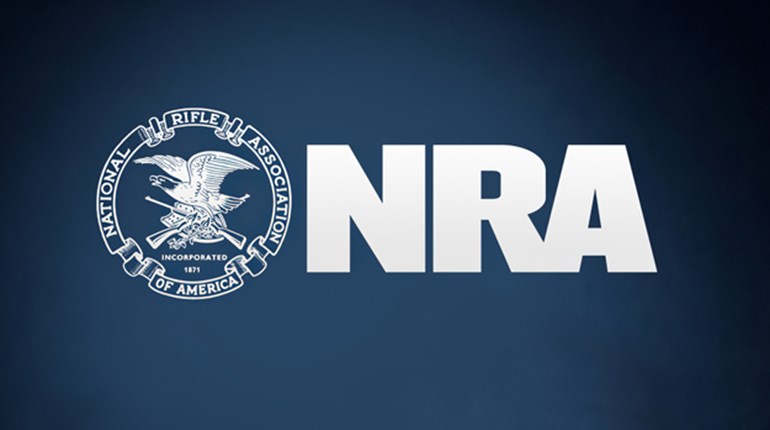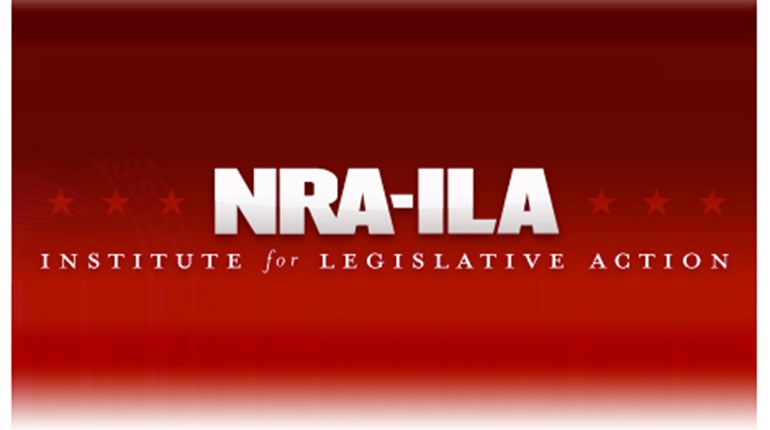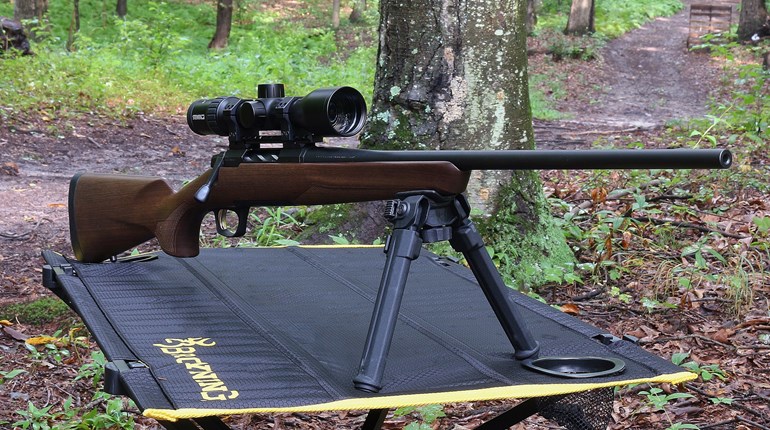
Gun owners are tasked with comporting their behavior to a web of shifting federal statutes, regulations and agency rulings, all the while understanding that none of this has any impact on a decent person’s decisions not to misuse a firearm or on a criminal’s choice to harm others. This frustration is even more acute for those who help to provide gun owners the tools necessary to exercise their Second Amendment rights—Federal Firearms Licensees (FFLs or gun dealers).
In a July 12, 2016, speech, President Barack Obama claimed “it is easier for a teenager to buy a Glock than get his hands on a computer or even a book.” Labeled false even by the likes of The Washington Post and Politifact, the ridiculous statement proved that the head of the executive branch had never bothered to crack open the ATF’s “Federal Firearms Regulations Reference Guide” or the agency’s “Federal Firearms Licensee Quick Reference and Best Practices Guide.” Had Obama tried to familiarize himself with either document, he may have come away with new appreciation for the regulatory burden already placed on FFLs.
While ordinary Americans view gun dealers as our friends, neighbors and oftentimes small businessmen who benefit their communities, the federal government views gun-dealer licensing as a key component of its gun-control apparatus. In the battle over the Gun Control Act of 1968, gun owners successfully prevented the development of a centralized firearm registry. However, the legislation instead tasked individual gun dealers with maintaining initial sales records on the firearms that passed through their businesses. As Sen. James McClure (R-Idaho) explained in 1985, “The central compromise of the Gun Control Act of 1968—the sine qua non for the entry of the Federal Government into any form of firearms regulation was this: Records concerning gun ownership would be maintained by dealers, not by the Federal government and not by state and local governments.”
Specifically, 18 U.S.C. 923(g)(1)(A) demands that each “licensed dealer shall maintain such records of importation, production, shipment, receipt, sale or other disposition of firearms at his place of business for such period, and in such form, as the Attorney General may by regulations prescribe.” As prescribed by federal regulation, this takes the form of an FFL’s “bound book” that records the acquisition and disposition of firearms and a compilation of customers’ Form 4473s—which non-licensees are required to fill out with personally identifying information upon the purchase of a firearm from an FFL.
FFLs are also tasked with filing paperwork with ATF on multiple-handgun sales, or in the case of the Southwestern U.S., multiple-handgun or semi-automatic-rifle sales, to a single customer within five consecutive business days. Moreover, gun dealers must use the FBI’s National Instant Criminal Background Check System to conduct background checks on most prospective purchasers and are tasked with responding to ATF firearm-trace requests in a timely manner.
All of this is enforced by an army of ATF industry operations investigators, who are empowered by federal law to “enter the premises of any … licensed dealer … for the purpose of examining or inspecting any record or document required by” law.
This government-mandated paperwork is on top of the significant amount of recordkeeping that any business must contend with just to operate. Inventory, taxes, payroll and then a massive federal gun-control regime—it all adds up. Just like any other regulated industry, with this mountain of compliance, paperwork mistakes can and do happen even to the most competent and well-meaning licensees.
Perhaps understanding the inevitability of some amount of paperwork mistakes, on June 23, 2021, the Biden-Harris administration announced a “zero tolerance” policy for what they termed “rogue gun dealers.” The policy noted, “[a]bsent extraordinary circumstances that would need to be justified to the Director, ATF will seek to revoke the licenses of dealers the first time that they violate federal law ...” for certain specified violations.
Then, last December, ATF updated its “Federal Firearms Licensee Quick Reference and Best Practices Guide.” The updated guide makes clear that “ATF will, absent extraordinary circumstances, initiate proceedings to revoke the license of any dealer that has committed a willful regulatory violation of the Gun Control Act (GCA) for specified violations.”
Violations subject to the zero-tolerance policy include “[f]ailing to conduct a required background check,” “[f]alsifying records, such as a firearms transaction form” and “[f]ailing to respond to a trace request.” While some of these may be serious violations that warrant revocation, many will be simple paperwork errors. Notably, “falsifying records” is a very broad category that can include making simple errors on the Form 4473, and “failing to respond to a trace request” could result from simply missing an attempted contact by ATF. Moreover, it is NRA’s understanding that even FFLs which have self-reported compliance mistakes in good faith have become the targets for license revocation.
Despite the Biden-Harris administration’s colorful rhetoric, this enforcement effort appears aimed at reducing the number of FFLs rather than curtailing so-called “rogue” dealers. Attacking FFLs in this manner serves the administration’s broader goal of making it more difficult and expensive for law-abiding Americans to exercise their Second Amendment rights.
This tactic is particularly nefarious given the administration’s other gun-control policy aims. President Biden has been a vocal supporter of legislation to criminalize the private transfer of firearms—often inaccurately described as “universal background check” legislation. Most iterations of this policy would force almost all firearm transfers to take place through an FFL. Therefore, the Biden-Harris administration is attempting to curb access to FFLs at the same time they are pushing legislation mandating their use for private transfers. It would appear that the administration’s goal is to inhibit lawful firearm transfers.
The Biden-Harris assault on gun dealers is bad on its own, but the measure takes on a ridiculous light when examined in the context of recent the Democratic presidential administrations’ war on gun owners.
In the early 1990s, it was an article of faith among gun-control proponents that there were just too many gun dealers in the country. Back in the pre-District of Columbia v. Heller days, gun-control supporters were more honest about their goals and anything that made guns more obtainable, like a healthy supply of gun dealers, was something they openly opposed.
In December 1992, handgun-prohibition outfit the Violence Policy Center published a report titled, “More Gun Dealers Than Gas Stations.” The authors whined that there was a “bloated, unmanageable universe of illegitimate FFL holders.” VPC took particular aim at small-scale FFLs they termed “kitchen-table” gun dealers.
Less than a year later, Clinton targeted these small businesses.
On Aug. 11, 1993, Clinton issued a memorandum for the Secretary of the Treasury on gun-dealer licensing. The memo directed the secretary to take “whatever steps are necessary” to reduce the number of gun dealers. Clinton complained, “30 percent of licensees engage in a limited level of business, typically out of private residences.” At Clinton’s behest, ATF implemented regulatory restrictions that sought to create a minimum threshold of business activity for FFL eligibility.
Clinton’s attack on small-scale FFLs proved effective, with the number of gun dealers dropping 80 percent between 1994 and 2007. In 2006, the Brady Center to Prevent Gun Violence’s Director Dennis Henigan called Clinton’s assault on firearm commerce “a major policy success.”
Calling into question Henigan’s dubious characterization, in January 2016, Obama reversed course on the Clinton-era policy.
By that year, so-called “universal” background checks were gun-control proponents’ obsession. Having failed to curb private firearm transfers in April 2013 with the Manchin-Toomey amendment, gun controllers were eager to stretch federal law to require background checks on a wider array of gun sales.
Under federal law, those “engaged in the business” of selling firearms must obtain an FFL and conduct background checks on prospective buyers. Those who sell guns out of a personal collection without doing so “with the principal objective of livelihood and profit” do not need to be licensed with the federal government and are not required by federal law to conduct background checks.
Understanding that the Gun Control Act of 1968 and the Firearm Owners Protection Act of 1986 limited the federal government’s ability to regulate the private transfer of firearms, the Obama administration released a document clarifying the circumstances under which a person must obtain an FFL. Titled, “Do I need a license to buy and sell firearms?” the guidance explained the relevant federal statutes and regulations concerning firearm dealing and summarized the administration’s view of the controlling case law.
In a “fact sheet” accompanying the guidance, the Obama administration made clear that their goal was to get more individuals into the federal licensing scheme, and thus increase the number of firearm transfers subject to a background check. The document described the goal of the administration’s efforts as “ensur[ing] that anyone who is ‘engaged in the business’ of selling firearms is licensed and conducts background checks on their customers.”
So, now with the Biden-Harris administration’s actions, consecutive Democratic presidents have perpetrated a dramatic political flip-flop-flip on gun-dealer licensing. While this series of policy reversals can be viewed as schizophrenic, some will see a pattern: A willingness by gun-control-supporting politicians to frustrate law-abiding gun owners and dealers by whatever means the law and politics of the moment allows, with the ultimate goal of eliminating any legal way to buy a gun.


































